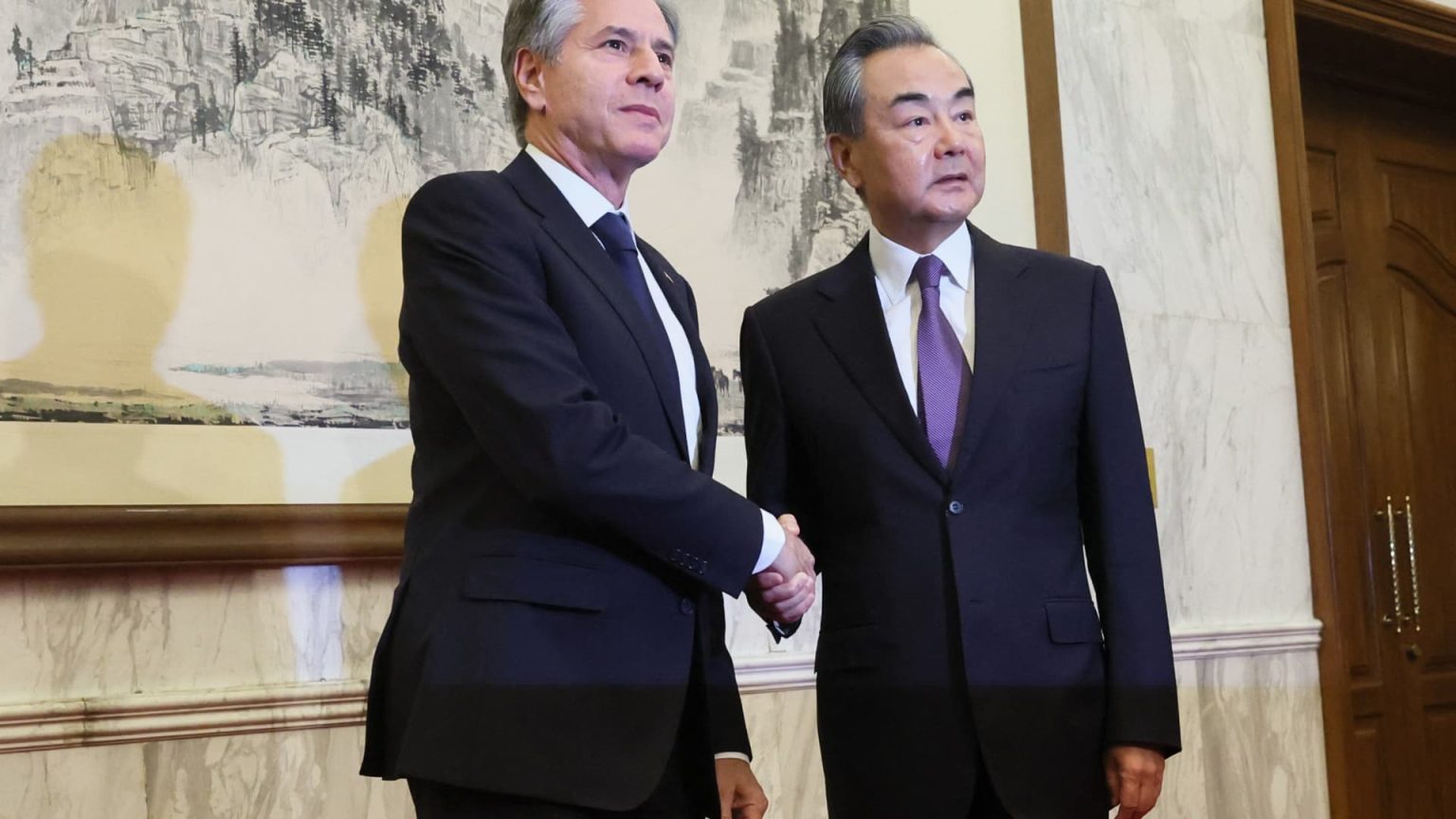In a bid to maintain stable relations and avoid misunderstandings or miscalculations, U.S. Secretary of State Antony Blinken stressed the importance of face-to-face diplomacy with China during a closed-door meeting with Chinese Foreign Minister Wang Yi. The two countries have been grappling with tensions as they vie for dominance in tech, economics, and politics. Wang noted that while relations are showing signs of stabilization with increased dialogue and cooperation, negative factors are on the rise, causing disruptions. He warned the U.S. against infringing on China’s core interests and red lines.
President Joe Biden’s meeting with Chinese President Xi Jinping in San Francisco last year, alongside a recent phone call between the two leaders, have marked attempts to address underlying concerns. Tensions between the U.S. and China have persisted over various issues, including the trade war, China’s alleged spying activities, and its support for Russia’s military endeavors in Ukraine. Ahead of Blinken’s visit, the U.S. planned to caution Beijing against backing Russia’s defense base reconstruction, which could jeopardize European security. During his trip, Blinken also discussed trade policies and economic practices with Chinese officials, emphasizing the need for fair competition and a level playing field for American workers and businesses in China.
Blinken’s second visit to China comes after a pivotal diplomatic mission in June last year aimed at managing U.S.-China tensions. The Secretary of State highlighted the significance of responsibly handling the consequential relationship between the two nations. While seeking progress on areas of cooperation that were agreed upon by the presidents, Blinken also aimed to address existing differences and clarify each side’s positions. The emphasis was on ensuring transparency and mutual understanding regarding intentions and stances on key issues.
Both Blinken and Wang acknowledged the complexities inherent in the U.S.-China relationship, with a shared commitment to preventing misunderstandings and miscalculations. Beyond the ongoing dialogue and cooperation efforts, challenges persist due to factors that threaten stability. China has expressed concerns about the suppression of its development rights and challenges to its core interests, urging the U.S. to respect its boundaries. The need for clear communication and the avoidance of actions that could escalate tensions were underscored as essential components of facilitating a constructive engagement between the two superpowers.
The U.S. has been vocal about its reservations regarding China’s involvement in supporting Russia militarily, as evidenced by the concerns raised by American officials. Blinken’s consistent focus on trade, economic policies, and fair competition reflects the broader U.S. strategy of engaging with China while addressing areas of contention. By championing a level playing field for American businesses and advocating for economic fairness, the U.S. aims to navigate the complexities of the bilateral relationship while safeguarding its interests. The recent interactions between U.S. and Chinese leaders underscore the ongoing efforts to manage challenges and nurture opportunities for collaboration amidst a backdrop of geopolitical tensions.
As the U.S. and China strive to navigate their multifaceted relationship, diplomatic engagement remains crucial in averting potential conflicts and enhancing cooperation. The recent high-level meetings and exchanges between officials reflect a commitment to dialogue, transparency, and the pursuit of common objectives while acknowledging differences. By emphasizing the importance of clear communication, respect for boundaries, and the management of strategic concerns, both countries aim to foster a relationship that balances competition with cooperation. Through ongoing efforts to address shared challenges and mitigate risks of misunderstanding, the U.S. and China seek to promote stability and progress in their complex relationship.













